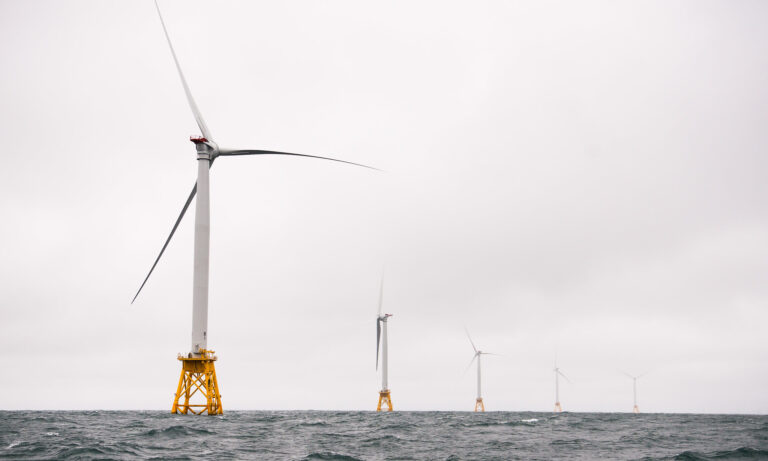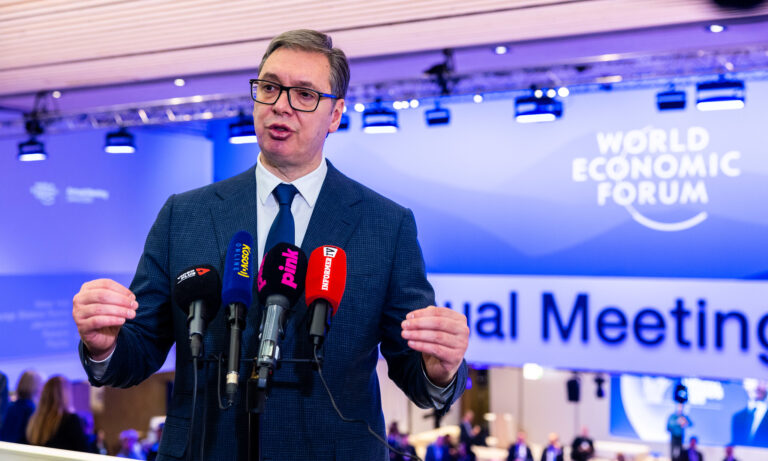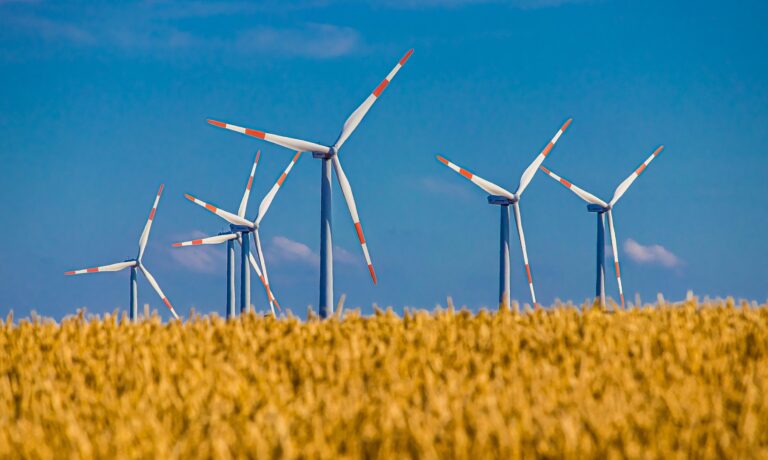China Policy to Take a Back Seat after Slovenian Elections

This article is part of a series from CHOICE focusing on the impact of elections across Europe on China policy.
On April 24, Slovenians headed to the polls to decide in what many called a historic election. Although analysts predicted the race would be tight, the current center-right/right government was ousted by a center-left party Freedom Movement by a significant margin of more than 10 percent of the vote. Although the new government is yet to be formed, Slovenia can expect a return to the erstwhile pragmatic China policy with the goal of keeping doors open. At the same time, the recent engagement with Taiwan might be frozen.
The Morning After
The closely watched elections brought to victory the Gibanje svoboda (Freedom Movement) party, headed by Robert Golob, a green liberal politician, by securing 34 percent of the vote. The right-wing Slovenian Democratic Party (SDS) of Prime Minister Janez Janša followed with 23.5 percent, then the democratic Christian party New Slovenia (N.Si) with 6.8 percent, the Social Democrats (SD) with 6.6 percent, and the Left with 4.4 percent of the vote.
It is not only the highest election turnout since 2002 but also the resulting composition of the National Assembly that makes this election historic. Only five parties passed the threshold to enter the parliament, with three parties – Freedom Movement, SD, and the Left – now likely to form a majority coalition controlling 53 of the 90 seats, leaving 35 seats to the opposition parties. The remaining two seats will be delegated to representatives of the Italian and Hungarian minority in Slovenia, who do not represent any specific party, but usually work with the government. Slovenia is thus likely looking at a deeply divided Parliament, with forces pulling in two separate directions.
China Policy Sidelined
After emerging on top of the vote, Robert Golob announced that coalition talks would begin on April 26. As of now, no concrete name has been discussed for the post of the Foreign Minister, and the difficult coalition negotiations are still to take place. One thing is clear, though – with the firebrand Prime Minister Janša leaving, Slovenia’s China policy is likely set to return to its pre-2020 track and take the back seat in the country’s overall foreign policy strategy.
Slovenia’s foreign policy has long prioritized its neighborhood and ties with partners in the EU. The small size and capacity of the diplomatic corps are the chief reasons why Slovenia has to be selective in what areas to focus on, putting quality over quantity, and prioritizing economic diplomacy. Under the Marjan Šarec administration, which governed from 2018 until March 2020, cooperation with China mainly occurred within the scope of the 16+1 platform, without any major bilateral developments, excluding the visit of China’s Foreign Minister to Slovenia.
China was thus, for a long time, seen solely as an important economic partner and Slovenia’s approach to ties with Beijing revolved around fostering economic cooperation without focusing on issues such as human rights. However, several factors contributed to China becoming a more prominent topic in Slovenia, from the COVID-19 crisis to the controversial ‘anti-Huawei’ bill discussed in the Slovenian parliament. In January, the focus on China issues peaked when Prime Minister Janša talked about improving ties with Taiwan in a media interview, causing a brief diplomatic spat with China this January.
Because of the diplomatic tensions, China was expected to feature quite prominently in pre-election debates. Prime Minister Janša aired accusations that the SD party and its center-left/left KUL coalition were the successors to the (socialist) dictatorship, and the Chinese Communist Party (CCP) members were “their role models.” Moreover, the Prime Minister implied that the CCP used the SD Party to arrange an extraordinary meeting of the Foreign Affairs Committee in the National Assembly after he announced that Slovenia would pursue closer ties with Taiwan.
However, with the KUL coalition performing poorly in the campaign, the Freedom Movement became Janša’s main competitor and China-related issues were barely addressed in the election campaign. In fact, the only mention of China in relation to the Freedom Movement was a brief corruption scandal, in which Gorenje, a major Slovenian company owned by Hisense, was allegedly involved. Nevertheless, nothing came out of the scandal in the end, and the faint possibility of China-related factors playing a role in the election campaign disappeared.
Even when China was mentioned in the election debate on foreign policy, it was only in the context of China as a representative of an “Eastern autocracy” or of the “Asian model,” as well as in the context of China’s cooperation with Russia. However, China was not tackled as a standalone issue, not to speak of any debate on the Slovenian China policy or the future of EU-China relations.
The Freedom Movement’s election program devoted little attention to foreign policy, except for the goal of strengthening Slovenia’s role in the Alpine-Adriatic-Danube area and in the Mediterranean, supporting Slobenia’s candidacy for a non-permanent member of the United Nations Security Council, and building “an international reputation that will allow a safe, developed and respected Slovenia.” Otherwise, the foreign policy chapter of the election manifesto did not refer to any other key issues.
Business First
Unlike Janša, who led a tough China policy, tried to curtail China’s activities in Slovenia, and often criticized China for human rights abuses, unfair trade practices, and lack of democratic principles, the new government will likely lead a less ‘opinionated’ China policy, focusing on pragmatic cooperation. Such a policy may bring a positive impact on the Slovenian businesses, but the position of Slovenia on the EU-China policy might be shaken.
The first response by the Slovenian business community to the election result was domestically-oriented, with an emphasis on structural reforms necessary to enhance Slovenia’s competitiveness. As some of the most successful companies, such as the previously-mentioned Gorenje, have Chinese owners, it would definitely be in their interest if the new government decides to foster close relations with China. At the same time, doors would stay open to doing business with Taiwan and further diversifying economic relations elsewhere, without challenging China politically.
In this context, the plan to exchange representative offices with Taiwan, announced by Janša in January and later confirmed by the Committee on Foreign Affairs in the National Assembly, is now in jeopardy. It is likely that the government under Golob will push the exchange of representative offices to the bottom of its priorities, or abandon the plan completely, for the sake of fostering good relations with China.
Next Steps
Overall, ties between Ljubljana and Beijing under the new government will most likely revolve around pragmatic economic cooperation, which is likely to come at a cost of a principled China policy. Although Slovenia’s new foreign policy strategy identifies “establishing an international environment that will contribute to the development of human rights” as one of the goals of Slovenia and the EU’s cooperation with countries in Asia, it is likely that the new government will prioritize economic diplomacy.
In the end, the lack of China topics in the election campaign and debates on foreign policy signals that China policy will take a back seat in the general foreign policy strategy of Slovenia. After the tumultuous era under Janša, Slovenia is unlikely to rock the boat too much on key foreign policy issues.
The future direction of Slovenia’s foreign policy will begin to crystalize more clearly as the National Assembly starts the process of voting in the new government, especially with its hearing of the Foreign minister candidate. Until then, the Freedom Movement has time to clarify its foreign policy goals and to truly set Slovenia on a path of “safety, development, and respect in international relations,” as stated in their election program.
Written by
Tinkara Godec
tinkaragTinkara Godec is an MA student of Economy and Society of East Asia at the University of Vienna, focused on digitalization and EU-China relations. She is also an Account Manager at ProjectHouse CN, a Slovenian consultancy focusing on China.


